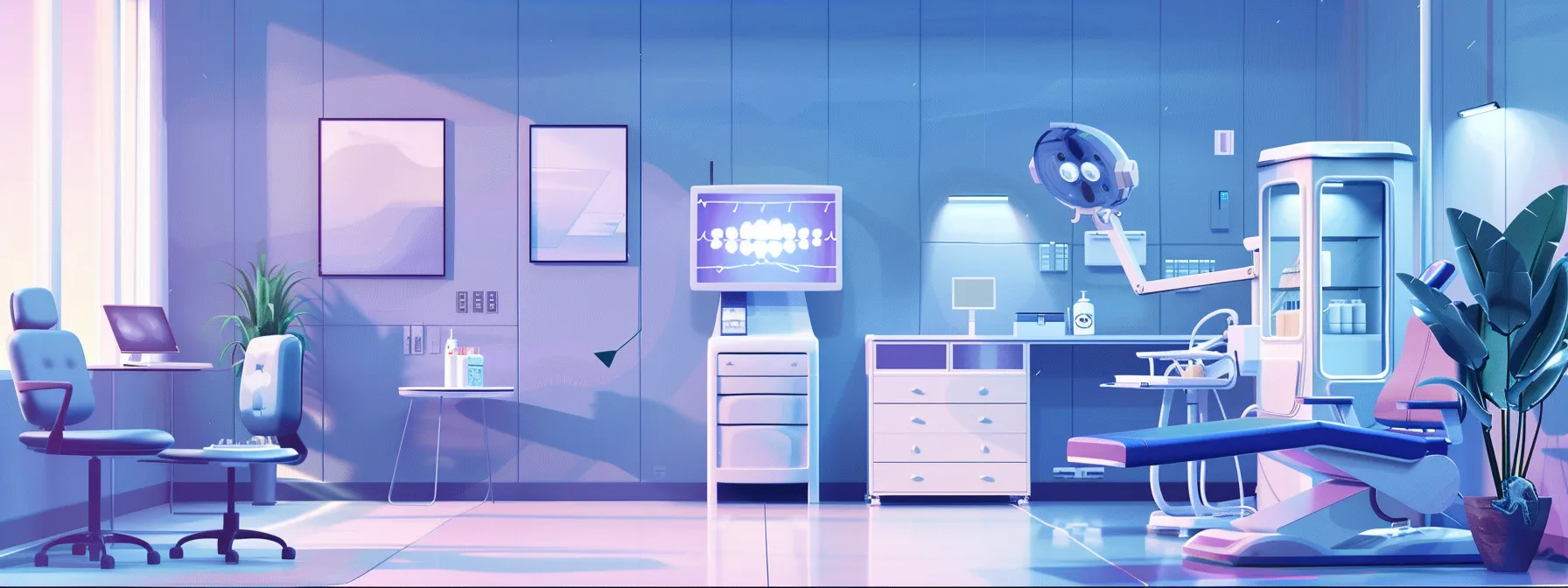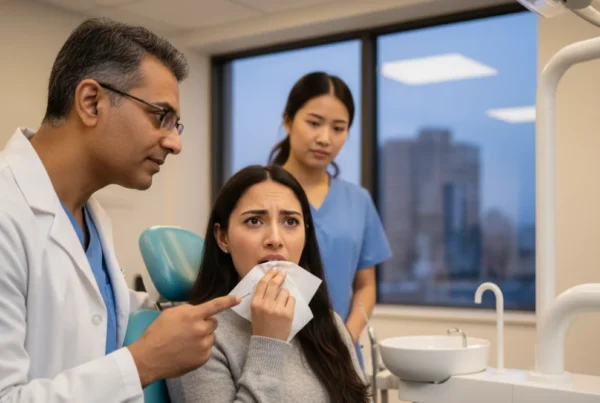“Toothaches can stop you in your tracks—and they never show up when it’s convenient.”
At Gentle Grand Prairie Dentist, we understand how intense, frustrating, and distracting tooth pain can be. It can hit you in the middle of the night, during dinner, or right before a big meeting. When it does, you need fast relief and a clear plan.
Let’s walk through smart strategies for toothache relief, what you can try at home, and when to call your emergency dentist in Grand Prairie.
Common Causes of Toothaches
Tooth pain isn’t always the same—and the cause matters. Common culprits include:
- Cavities
- Cracked teeth
- Tooth infections or abscesses
- Gum disease
- Tooth grinding or clenching
- Sinus infections that mimic dental pain
If your pain is sharp, throbbing, or radiates to your jaw or ear—it’s time to get checked.
Fast Toothache Relief at Home
Here are some trusted ways to get temporary relief while you wait for your appointment:
1. Over-the-Counter Pain Relievers
Ibuprofen or acetaminophen can help reduce inflammation and pain. Always follow the directions and don’t exceed the recommended dose.
Avoid placing aspirin directly on your gums—it can cause chemical burns.
2. Saltwater Rinse
Simple but effective. Swish with warm saltwater (1/2 teaspoon salt in a glass of warm water). It helps reduce swelling and flush out bacteria.
Repeat as needed, especially after meals.
3. Cold Compress
If swelling is present or your jaw is sore, apply a cold pack to the outside of your face for 15–20 minutes.
This helps reduce inflammation and numb the area.
4. Clove Oil
This age-old remedy contains natural numbing agents. Dab a small amount of clove oil on a cotton swab and apply it gently to the sore area.
It’s strong—so use it sparingly.
5. Keep Your Head Elevated
Lying flat can worsen the pressure and pain. Try propping your head up with a few pillows, especially at night.

What to Avoid When You Have a Toothache
To keep the pain from getting worse:
- Don’t chew on the affected side
- Avoid hot, cold, or sugary foods and drinks
- Skip hard or crunchy snacks
- Don’t ignore it—pain is a sign something’s wrong
When to Call an Emergency Dentist
Tooth pain that lasts more than a day or gets worse over time isn’t something you should ignore.
Call Gentle Grand Prairie Dentist right away if you experience:
- Severe pain that keeps you up at night
- Swelling in your face or jaw
- A visible abscess or bump on your gum
- Fever or a bad taste in your mouth
- Pain after trauma or injury
We’ll get you in as soon as possible and find the root cause.
How We Treat Toothaches in Our Office
Every case is different, but here’s what you can expect at your emergency visit:
- Digital X-rays and full evaluation
- Diagnosis of the root cause
- Treatment options explained clearly
- Immediate relief when possible
We may recommend a filling, root canal, deep cleaning, or in some cases, extraction. No matter what, we’ll walk you through every step.
Prevention: Keep the Pain Away Long-Term
The best way to avoid toothaches? Stay proactive.
- Brush twice a day with fluoride toothpaste
- Floss daily (yes, it matters!)
- Visit us every six months for checkups
- Wear a nightguard if you grind your teeth
- Call us early when something feels off
We’re Here When You Need Us
Toothaches are miserable—but help is just a phone call away. Whether it’s sudden pain or something that’s been building for a while, we’ll help you get relief fast and fix the problem for good.
Call Gentle Grand Prairie Dentist today and let us take care of the ache—and your peace of mind.
Book an appointment with Grand Prairie, TX’s top dentist, Dr. Khademazad, today. It’s the first step to a better smile and increased self-esteem. Act quickly to enjoy a beautiful, straight smile without the pain of traditional braces. Call us at 972-988-0900.
Schedule Your Consultation Today!
2475 W Pioneer Pkwy Grand Prairie, Texas, 75051
Google Reviews: See More Reviews From Grand Prairie Family Dental
View information about local places in our community.
Driving Directions to Our Practice
Questions Patients Ask
Will a toothache always mean I need a root canal?
Not always. A root canal is only necessary when the tooth’s nerve or pulp is infected or severely inflamed. Some toothaches may be caused by gum irritation, minor decay, or even sinus pressure—and can be treated with a filling, deep cleaning, or other conservative care. We’ll perform a thorough exam and take digital X-rays to determine the exact cause before recommending any treatment.
Can I go to urgent care for a toothache, or should I see a dentist first?
It’s always best to see a dentist first. Urgent care centers aren’t equipped to treat dental problems beyond offering temporary pain relief or antibiotics. They can’t take dental X-rays or provide tooth-specific treatment like fillings, root canals, or extractions. If you’re in Grand Prairie and in pain, give us a call—we’re ready to help!
How do I manage a toothache if I can’t get in right away?
Start with over-the-counter pain relievers like ibuprofen, rinse with warm saltwater, and use a cold compress on the outside of your cheek if there’s swelling. You can also use clove oil to numb the area temporarily. Keep your head elevated and avoid trigger foods (hot, cold, sweet, or hard). These steps won’t fix the issue, but they can make the wait more manageable until your appointment.
Related Articles
Emergency Tooth Extraction, Dental Emergencies, Tips for Emergency Dental Care, Dental Emergency Symptoms, Emergency Dental Procedures, Emergency Dental Insurance, Emergency Dental Care Preparation, Alleviating Dental Pain, What to do For Knocked-Out Teeth, Understanding Emergency Care, Emergency Dental Services, What’s an Emergency Dentist, Emergency Root Canal, Effective Toothache Relief Strategies, Dental Emergency Prevention






